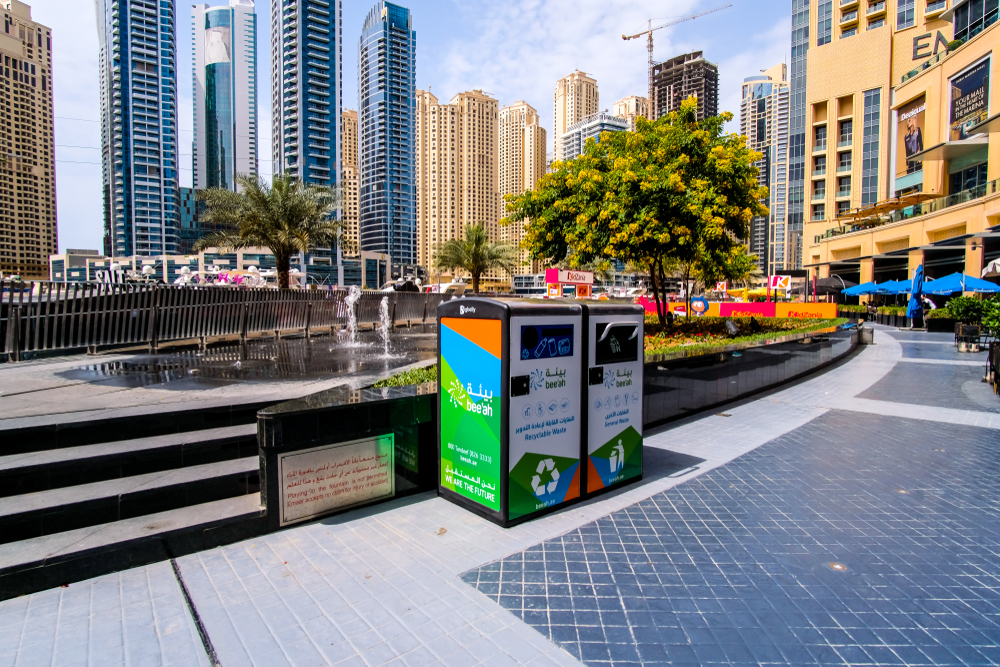Waste Management in UAE: 5 Strategies for a Zero-Waste Future

Waste management is a critical issue that affects the environment, public health, and economic sustainability. In the UAE, waste generation has been increasing rapidly, driven by population growth, urbanization, and economic development. According to a report by the World Bank, UAE generates around 6.5 million tons of municipal solid waste (MSW) per year, with a per capita generation rate of 2.3 kg per day, one of the highest in the world. This waste poses significant challenges for the country’s landfills, which are reaching their capacity limits, and for the environment, which is facing pollution and degradation. In this blog, we will explore strategies for waste management in UAE that can lead to a zero-waste future.
Reduce, Reuse, and Recycle (3Rs)
The 3Rs approach is a well-known waste management strategy that focuses on reducing waste generation, reusing materials, and recycling them. This approach can help the UAE to reduce the amount of waste sent to landfills and promote resource efficiency. UAE has already implemented several initiatives to promote the 3Rs, such as the National Agenda for Waste Reduction and the Dubai Municipality’s Zero Waste project. These initiatives aim to increase public awareness of waste reduction and encourage businesses and individuals to adopt sustainable practices.
Composting and Anaerobic Digestion
Composting and anaerobic digestion are organic waste management techniques that can turn food waste and yard waste into valuable resources such as compost and biogas. Composting is a natural process that decomposes organic matter through the action of microorganisms, while anaerobic digestion is a controlled process that produces biogas by decomposing organic matter in the absence of oxygen. These techniques can help UAE to divert organic waste from landfills and reduce methane emissions, a potent greenhouse gas.
Waste-to-Energy (WTE)
WTE is a waste management technique that converts non-recyclable waste into energy through thermal or biological processes. This technique can help UAE to reduce its dependence on fossil fuels and generate electricity from waste. Several WTE projects are currently underway in UAE, such as the Sharjah Waste-to-Energy project, which aims to generate 30 MW of electricity from MSW. However, WTE also has potential environmental risks, such as air pollution, and should be carefully planned and managed. Source: The UAE Gov’t Portal
Extended Producer Responsibility (EPR)
EPR is a waste management policy that holds manufacturers and producers responsible for the environmental impact of their products throughout their life cycle. This policy can help UAE to shift the burden of waste management from local governments to the private sector and incentivize manufacturers to design products that are more sustainable and easier to recycle. Several countries, such as Japan, Germany, and Canada, have implemented successful EPR programs, and UAE can learn from their experiences and adapt them to its context.
Smart Waste Management
Smart waste management is an innovative approach that leverages technology to optimize waste collection, transportation, and disposal. This approach can help UAE to reduce operational costs, improve efficiency, and enhance the quality of waste services. Smart waste management solutions include waste sensors, route optimization software, and data analytics platforms. For example, the Dubai Municipality has implemented a smart waste management system that uses GPS and RFID technologies to track waste collection vehicles and monitor their performance in real-time.
Conclusion
Waste management is a complex and multifaceted issue that requires a holistic and integrated approach. UAE can adopt a combination of these strategies to achieve a zero-waste future, reduce its environmental footprint, and promote sustainability. However, these strategies also require strong political will, public engagement, and stakeholder collaboration to succeed. By adopting a long-term vision and a comprehensive plan, UAE can transform its waste management system from a challenge to an opportunity for sustainable development. Take a pledge today!
